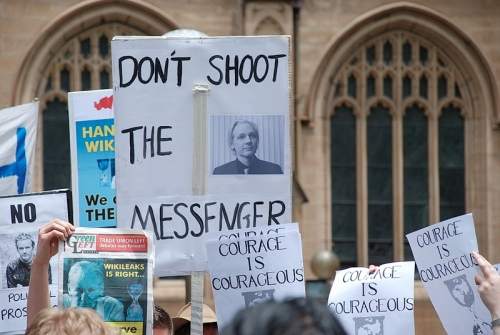WikiLeaks founder Julian Assange was recently granted 14 days by a British court to challenge his pending extradition to Sweden where he faces charges of sexual assault.
Assange – who denies the accusations – is concerned that extradition to Sweden could ultimately lead to his eventual transfer to the United States.

“[This] ruling takes Julian Assange one step closer to being extradited to Sweden,” Jago Russell, chief executive of Fair Trials International told the UK-based Guardian.
“Although Sweden is rightly proud of its justice system, its overuse of pre-trial detention means that, if extradited, he is likely to be imprisoned and placed under extremely restrictive conditions.”
Assange, who holds Australian citizenship, has been the subject of intense discussions between Canberra and Washington. Prime Minister Julia Gillard acknowledged on Thursday that the “Australian government cannot interfere in the judicial processes of other countries.”
Nevertheless, Australian Foreign Minister Bob Carr was quick to emphasize that the United States “has said nothing to indicate they’re planning an indictment,” as US Ambassador to Australia Jeffrey Bleich claimed America had little interest in Sweden’s extradition bid succeeding.
“It’s one of those narratives that has been made up. There’s nothing to it,” Bleich added.
Assange, however, remains unconvinced.
“The big risk, the risk we have always been concerned about, is onwards extradition to the United States. And that seems to be increasingly likely,” the WikiLeaks founder told the BBC. “A lot of face has been lost by some people and some… have careers to make by pursuing a famous case.”
Assange became a household name in 2010 after WikiLeaks released hundreds of thousands of classified US documents, including a video that showed US forces firing at Iraqi civilians and journalists whom they had mistaken for armed insurgents.






